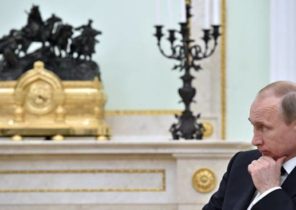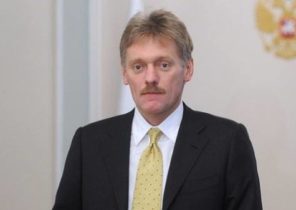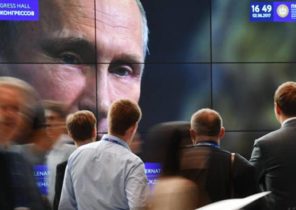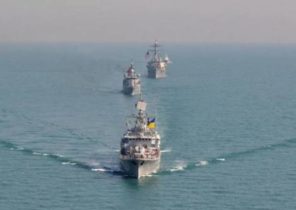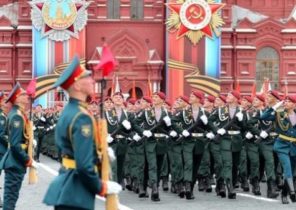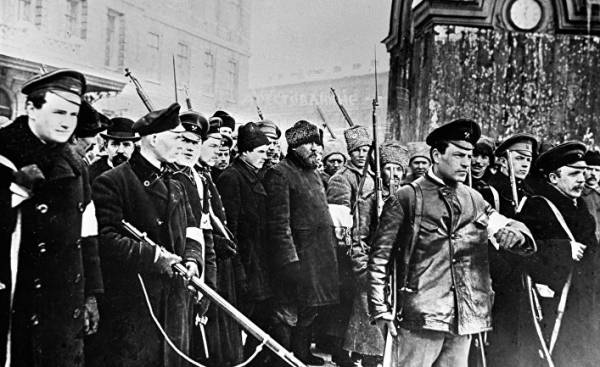
A month has passed since the last Tsar was forced to abdicate the throne, which became a successful final fleeting revolution in St. Petersburg. The old tsarist regime became a “historical memory”, as formulated by our war correspondent in the East, communicated with the Russian prisoners of war. To call this regime, which no one even dared to defend, something more than a dark and sad memory, of course, impossible.
When carrying out the revolution in that vast Empire there was some trouble with the police, which, however, was more defending itself than defending the rule of law. The success of the revolution more surprising that it was achieved in the midst of war, even many Russians were surprised at. This is explained not only by the fact that the old system is rotten, and certainly not only technical difficulties with transport and security. Such difficulties are everywhere, but in other places they do not lead to revolutions. And in Russia, difficulties have arisen only in relatively small part of the Empire, while the rest of the country supported the revolution. Riots in St. Petersburg, never to be crowned with success, although they started the proletariat, who already had many years of experience with large strikes.
Only the State Duma, too, were powerless more than other parliaments, because it is only conditionally could show claims to represent the whole of Russia. The combination of both factors, is notable for the decisiveness of leaders, ensured the brevity and relative bloodlessness of the revolution. But this result would not be possible without the support of the whole country. Now it is received (although the prospects for the future restructuring is still unclear), and a return to the past as to the “historical memory” seem to be completely excluded.
Of course, the great Russian revolution cannot begin and end in just a month. In this Empire re-created virtually everything that has something to do with the legal state; even from the past control you can take with you into the future, only individual parts. Before the Russian is a challenge for many years to come. First, the people who took in the chaos March power in your hands, you need to create a “temporary structure”, and under its cover to start work on the foundations of the future state.
This task is extremely complicated internal war, a chilling inside Russia, and further complicating it is the fact that to these urgent problems of Russian politics are added to the effects of dual causes of the revolution, which are even more important than temporary measures of internal improvement. On the other hand, for us it would be a dangerous illusion to overlook that the war could be a factor that mitigates the internal contradictions among the Russian.
Of course, the chauvinistic slogan under which the Cadet party in August 1914 bravely got involved in the war, today verse, but if the masses, which, like many questions point to the Interim government what to do, I would have come to the conclusion that the achievements of revolution are in danger from the peace movement, the French government agents working in St. Petersburg under the guise of socialist propagandists would be very easy to lead the game.
And the gains of the revolution until now is not so small. Indeed, it was considered necessary to recreate everything from scratch. The only state body which was in Russia a truly ubiquitous, the police first had everywhere abolished. So it is everywhere replaced by the police. It seems to have managed to do without any problems — even in rural areas. That some-where report about peasant protests is not surprising. Even in peaceful times it happened that the peasants burned the houses of local landowners. Much more surprising that the peasants are generally quite calmly accepted the revolution because, according to reports on the riots, they were covered only very small areas.
One only of Bessarabia the new order has not yet been set. In this bordering Romania region — a very special social and economic circumstances, very different from conditions in the rest of Russia. However, with the abolition of the police had solved only part of the most urgent tasks; it was necessary to do so to local authorities — district councils and community councils — have gained real credibility. In many places this had seriously to rejuvenate the composition of the elected authorities and to expand their powers.
This task, in General, have also been successfully addressed. If this impression is confirmed, it will mean for the Provisional government much more than high-profile event in the capital, seen by the public around the world, and because having such a value that they may not deserve. For the first actions of the revolutionaries it is noteworthy that the statement of evidence of active internal resistance, or the inability of the people to a new order, we have to turn to details.
Of course, there were difficulties created by the police, and many agents of the old government, which initially lacking much of their salaries and “extra income”, work on the “proven” old methods of spreading disinformation and provoking a “pogrom” sentiments, which are not always directed only against the Jews, and adjusting to all sorts of crimes released inmates. In fact, the release of prisoners in accordance with the given in the first days after the revolution the order was one of the worst phenomena. Volunteers who joined the ranks of the police, of course, have no experience of dealing with repeat offenders. So in the big cities the situation seems to be still restless. By the way, this “Amnesty” enough and funny nuances, which told the prisoners themselves.
For example, in the prisons of Odessa prisoners “overthrew” his guards and appointed instead of them new, who solemnly swore not to attempt to escape. In one of the meetings of prisoners were policy decisions and were elected commissioners for the purchase of food in the city. Few prisoners were released “on parole”. In one of the restaurants of Odessa they are led by a convict to life term street thug held a meeting that was canceled adopted in the prison of the solutions promised to the new government to help bring order and safety to get right back to a full-fledged civil society.
Such incidents, the Russian press describes with humor, which they actually deserve. Some cities, in particular, in Eastern Siberia, reported that the revolutionaries had discovered the police have large warehouses with alcoholic beverages, which was then ceremoniously burned.
Meanwhile, the Interim government ordered to take a number of measures that were supported, in particular, the radical opposition from the ranks of the socialists and designed to gradually change the established image of Russia. However, the new government also dismissed the wrongful civilian prisoners taken from the enemy territories — this step is saying, at least, the great political wisdom and philanthropy of the new government. In addition, it abolished the death penalty, which although was intended to apply only in the territories governed by martial law, is actually universally applied, primarily against the criminals who in any way showed his “political overtones”.
Measure Kerensky becomes especially important, because still not decided the fate of the Royal family (which, incidentally, is still under arrest in the Palace in Tsarskoye Selo). The abolition of the death penalty are also a few restrict the freedom of action of some of the fanatical extremists. Finally, the decree on the equality of different nationalities became a magnanimous decision of some difficult, but often artificially and unnecessarily pointed questions. If such decisions were made in peacetime and in a quiet environment, in connection with them, there would be numerous questions, but now nothing was impossible. Anyway, the new government appeared much more power, which should not be underestimated, because it could enlist the support of “foreign peoples”.
First and foremost, gratitude must experience the Jews, but Ukrainians must also be very grateful for the new freedom, which for them, perhaps, twice more valuable after the restrictions imposed during the war. Armenians and Georgians revolution also promises the best living conditions, so they must be happy too. It is clear that the people who met with Russia, first and foremost, from a historical point of view, and believe that the century-old struggle of the tsarist government for the utopian unification of a vast Empire meets the road, due to the need, it is not easy to get used to the idea of the country with a Federal structure.
It is at war, when it required maximum concentration of state power, people tend to see a dilution of the former Russian Empire, weakening it. At the moment, this is perhaps indeed the case, although this is still no proven. But really free regions to a significantly greater extent corresponds to, so to speak, “natural” natural conditions of the emergence of the Russian Empire, than an artificially created unit, which “bound” all the territories were part of the Empire, and could not prevent the centrifugal force, with negative consequences for the United States, while in the Federation, its individual members will have enough space for independence.
The old regime left, the revolutionary forces a huge amount of difficult, often even impossible tasks. It would certainly be naive to blame the new government that it failed overnight to solve the transport problems and universally to arrange uninterrupted supply of food. Problems have been accumulating for years due to inept economic activity, cannot be solved in just a few weeks. The good intentions of the new government, no doubt. By the way, even if they don’t all succeed, it will not pose a danger to the political results of the revolution, because the fault for this actually lies on the previous government.
No less difficult to put in order and the collapse of the financial sector and trade. Experts in the manufacturing of our Newspapers (see evening edition from April 17) to discuss the measures the new government indicating its commitment to financial health, but so far only confirming that the revolutionary movement is making progress. Now the Minister of Finance, Tereshchenko invited the citizens of the so-called “freedom loan”, the amount of which the German and the English sample can not be restricted, and it clearly says that the new government firmly believes in growth. (Telegraphic Bureau of Wolff still April 10 reported that in Copenhagen claim that the subscriptions to the loan will not be “out of concern that the wealthy class of society does not trust the new form of government” does not believe in the success of this project.
However, three days later, the St. Petersburg Telegraph Bureau reported the opening of subscriptions to the loan. It is very sad that news Agency, posts abroad which is perceived as official or at least semi-formal, fall to spread such rumours circulating in the Scandinavian capitals. Thus, only the impression (in which you are interested the Western allies of Russia) that Germany does not approve of the success of the Russian revolution and seeks to belittle them. (Biased coverage of the situation one known for its liberal views of the Berlin Newspapers have led in Russia to quite harmful consequences.)
By the way, the news about the financial arrangements of the new government should be treated with great caution. So, the message about the establishment of a number of state monopolies was premature, though similar plans had worked the old government.
The issue of monopoly on the grain trade, which in Russia, saying since 1912, impossible improvisation; sooner or later it will bring, but it is unlikely, primarily for fiscal purposes, which in the current financial situation, of course, require immediate effective measures. More likely the imminent implementation of plans for the introduction of a monopoly on trade in tea and sugar, possibly also oil and oil products.
The creation of various vested interests is inevitable, because the abolition of the monopoly on alcohol through a ban on the sale of vodka would deprive the state’s main source of income and would have made necessary a new security of the whole army officials. But with these things you can not hurry, as well as with the solution of the agrarian question, which sooner or later, but not later than after the end of the war, will be in the focus of all political interests.
Until the second plan also moved the debate about the future form of government Empire that has captured the minds in the first days after the revolution. Without a doubt, great interest was aroused by the idea of creating a Republic, but a constitutional monarchy is a very large number of supporters, and they include, for example, many influential “conservatives”.
It is highly unlikely that these and other issues related to the future Constitution will be resolved before peace. And only then the Russian revolution, the first week of which was devoted to a large “preparatory work” to be able to conclude definitively. Only then will the various forces in Russia will be able to converge to each other in the struggle to determine their own rights and the future structure of the huge state.

